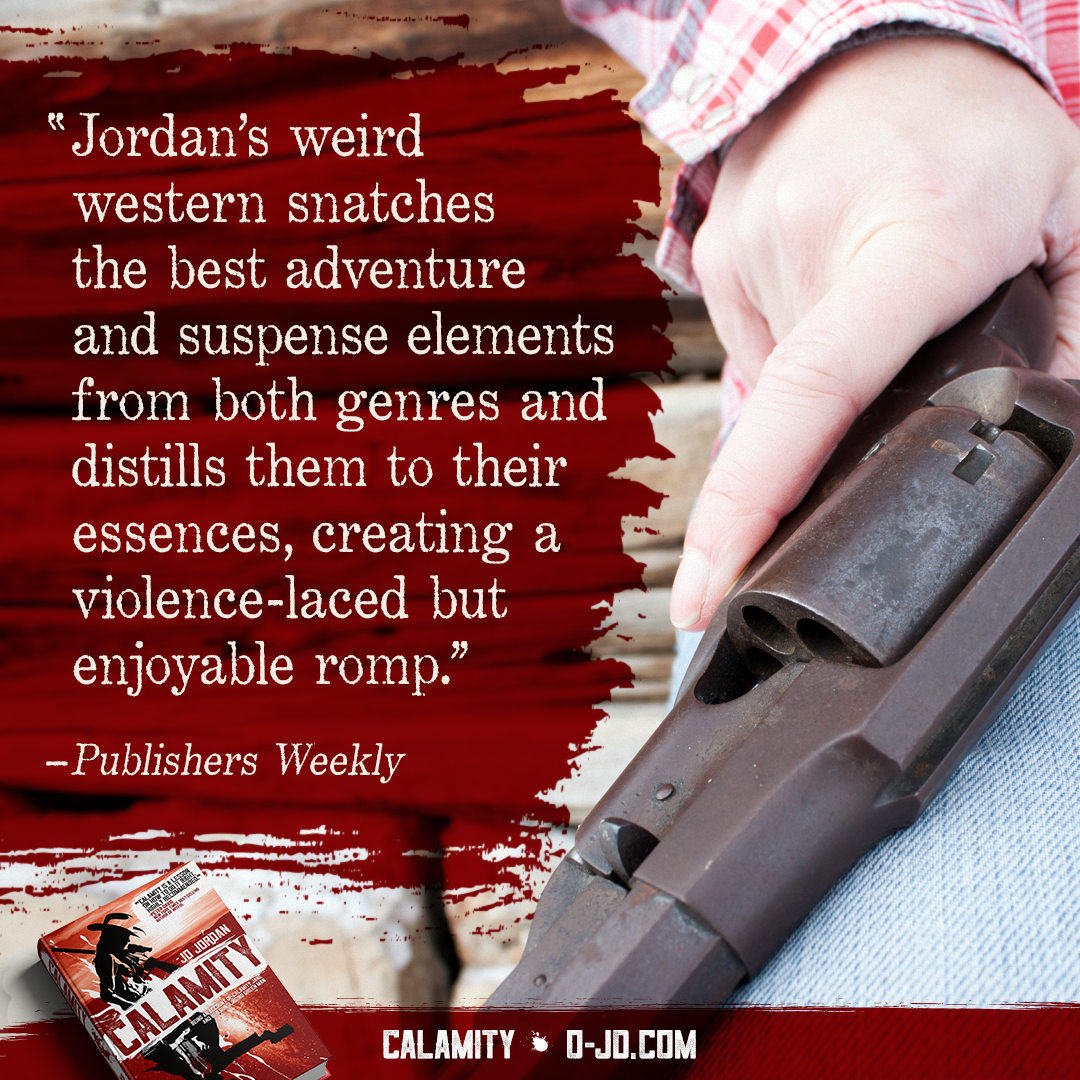Nonfiction - Editorial
Originally published as a guest post on The Suspense is Thrilling me, September 5, 2016
How Writing My Debut Novel Was Like Buying Lottery Tickets and Getting Struck by Lightning
Writing a book is hard. But the hardest part was getting struck by lightning.
My debut novel, Calamity: Being an Account of Calamity Jane and Her Gunslinging Green Man, hit bookshelves and e-readers on September 1.
Bear with me a second: Woooooo!
Seeing a story of mine published is something I’ve been working toward for almost 30 years. And for a lot of those years, whenever I would visit a bookstore, I’d wedge my hand into the spot where my novels would someday sit—auspiciously, just left of Robert Jordan, thank you very much! And on Thursday, September 1, you could've found me in any number of Atlanta bookstores checking to see if that spot is filled by my red-covered sci-fi-western.
I won’t rehash Chelsea’s fantastic review of Calamity except to say that it’s the coming-of-age tale of Wild West legend Calamity Jane with a sci-fi twist—namely, an otherworldly gunslinger, the Green Man. It’s an adventure of revenge and personal demons and the bond that forms between the titular pair of unlikely protagonists. I’m super proud of it.
But even as a shiny new novelist with absolutely no reputation (yet) folks have already started asking me how I did it: How did I get the idea, how long did it take to write, how long to publish?
I think folks want me to tell them that it came to me as a Tolkeinesque vision and that the words just poured out of me over a few short weeks. The truth is, of course, that Calamity spent a long time getting from my head to those bookshelves. I let the story ferment for years, bounced ideas off friends, and recorded notes for myself on my hour-long commute in and out of the city every day. And when I finally started putting pixels to paper, the first 80 pages took about six months of Saturdays to write. Then I took a year off to become a new dad before spending another six months of Saturdays banging out the other 200+ pages. I struggled at times with the content and the voice, having neither grown up a teenage girl or a fan of westerns. And then I had to edit the whole damn thing.
It was solitary and exhausting and required a lot of coffee. But it was also exhilarating and energizing work. I honestly can’t wait to start working on the next one!
But the hardest part wasn’t any of these activities or their related stresses. Or even the time it all took (I estimate, ten years from the first kernel to this Thursday). The hardest part was getting anyone else to give a damn. Because the truth in authorship, as in any creative pursuit, is that all the talent and craftsmanship and effort in the world isn’t enough unless you’re struck by lighting.
In talking about lightning, I’m actually heaping metaphor upon metaphor—but stick with me. I’m fortunate that in my day job, as a user experience designer, I deal with criticism and rejection all the time. It’s actually an embraced part of the user-centered design process. And as a designer I am exposed to a lot of startup companies and rapidly-prototyped projects. Fail fast, is the motto. Make a lot of good work and something will succeed. And, over all, I believe this is true. Doing a lot of work will improve your craft—Malcolm Gladwell’s 10,000 hours, and all—and it will also create more work you can get in front of more people and increase your chances for success.
Darius Kazemi likened this creative process to buying lottery tickets in his 2014 XOXO Festival talk, saying that “beyond a certain level of effort there’s basically no correlation between the amount of work you put into something and how successful it is.” Recognition, he argues, especially in the forms of good reviews, money, and success, is primary the result of a combination of luck and privilege. I think most creatives know this, instinctively and it can be humbling to accept. Unless we remember that “conceiving of a creative project and building it, that’s buying a lottery ticket,” and that we should cautious about looking to other creatives for advice. “There are two kinds of creative advice that you can get from creative people. The first, is how to buy more lottery tickets. And the second is how to win the lottery … the former can be extremely useful and the latter is nonsense.”
PJ Vogt of Gimlet’s Reply All podcast takes Kazemi’s metaphor one step further, reminding us that no one has figured out the algorithm to creative success. Not really. “People are running around outside holding giant metal poles, hoping to get struck by lightning. And, sometimes, some of them do. And the smart ones realize that it wasn’t because they were doing a better job holding their pole … If you do more projects, you’ll have more chances for things to hit.”
It might be tempting to dismiss two technologists talking about lotteries and lightning strikes. The technology space and the world of authorship are, superficially, very different. Except they’re both populated by creative people with very specialized skills who create work for very competitive markets.
Case in point, I once had the privilege to lunch with the wildly successful author Brandon Sanderson. And when I, as the budding author, asked him those same questions I’m now starting to get—how did he get his ideas, how long did it take him to write, and how long to publish?—he was refreshingly frank. He told me he wrote a lot of books before his first Mistborn novel was picked up. But that he just kept writing, hoping something he was passionate about would find the write agency and, eventually, the right editor. And (ready for irony heaped upon irony?) I’ll now be next to him on the shelf, where he took over Robert Jordan’s fantasy epic and also published a novel titled Calamity earlier this year!
You might find a certain fatalism in all this subjectivity and apparent randomness. I could be discouraging. But it shouldn’t be. Because once you realize that forces outside your control are such a huge part of your success, you can stop taking every piece of negative feedback or rejection quite so personally. After all, it’s not your fault if the wrong Ping-Pong ball drops or when lighting strikes elsewhere.
I’m reminded of my own rejections from agents:
Unfortunately, this isn’t a fit for me … [but] it very well could be perfect for someone else.
While I appreciate the creativity and dedication put into your work … I am the right fit for this project.
An interesting concept, but I couldn’t help feeling that the concept felt more middle grade, whereas the characters and themes tended toward YA. I had trouble reconciling the two.
I don’t think this one sounds close to our comfort zone, I’m afraid. Hate to say no but you want someone who will better know how to handle this offbeat project.
Nope. No winning lottery tickets there.
But I kept at it. And, because publishing has multiple gatekeepers, even after I landed with my agent, Andy, and his awesome team at The Zack Company I had to gamble my fortunes yet again, this time among publishers:
I enjoyed the charm and the premise, but westerns are an extraordinarily hard sell for us, even with the added sci-fi here. Though the protagonist is fun, her drawl got a bit much for me from time to time and really took me out of the narrative.
I can see why you’re excited about the novel, but ultimately I didn’t connect with the story in the way I would have hoped.
JD Jordan is talented writer and this is an interesting mash up of the Western, fantasy, and steampunk genres. But the voice, while authentic, was too much for me and I had trouble getting into the story.
I put this one aside because I wasn’t sure how well my new corporate masters could handle something as outside the box as this one. It really grabbed my attention, but I wanted to wait and see how [the publisher] developed.
The concept is unique—when you described it, it definitely made me pay attention, but I’m afraid that, personally, I just couldn’t connect with the voice. My impression is that it’s actually quite successful at executing the tone and familiarity the author intends—I’m just not the audience for it.
I read it, and enjoyed the character’s movement into grown woman and her relationship with the Green Man. I’m afraid the story wasn’t quite my cup of tea, unfortunately, but I’m certain you will find a home for it soon.
Nope. No lightning strikes there, either.
And these are only a fraction of the rejections, from both agents and editors. And these are only the written ones, not including the face-to-face denials, form letters, or ghostings. And Calamity is the third book I’ve written and submitted! Don’t even get me started on short fiction or screenplays…
Except I did win the lottery after years of rejections. And then I was struck by lightning after years more. And, to be frank, I’ve been struck a few times, since—by Library Journal and Publisher’s Weekly and folks like Chelsea. I’m feeling crispy.
So let’s rewind back to where we started. I’ve got a debut novel dropping on September 1. And Chelsea was gracious enough to give me guest spot on her awesome blog. And folks are already asking, how’d you do it?
The only real answer is, I kept writing and I kept showing it to people. I kept buying lottery tickets and wandering around in the rain with more and more poles. And eventually I got lucky.





